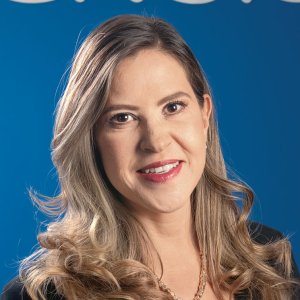Solar Heating Solutions Push Sustainability Forward

STORY INLINE POST
Q: How are global supply chain problems influencing Modulo Solar’s business development opportunities?
A: Currently, Modulo Solar is present in 15 countries in Central and South America, as well as in Spain. The delays in global logistics and supply chains, especially from Asia to the American continent, has increased interest in regional companies that can shorten supply chains. Modulo Solar benefited greatly, as a result. It has allowed us to position ourselves as suppliers to new customers in Latin America. Some of our key projects for 2022 are taking place in Panama, Colombia, Argentina, Honduras and Costa Rica.
Since we market a substitute for the use of fossil fuels, our business is closely linked to energy costs. The geopolitical situation surrounding the war in Ukraine has caused many companies to want to incorporate renewable energy solutions into their mix, which would allow them to lower energy costs and reduce dependence on fuels that are susceptible to unstable supply.
Q: What distinguishes the company’s solar thermal energy (STE) technology from other options in the market?
A: We have several advantages in the solar heat market. Modulo Solar is the largest STE company in North America, with the largest production capacity for this technology. The STE market usually requires tailored solutions, so we must constantly adapt our technology to the conditions of each client. Our 40 years of experience allow us to be efficient in this process. Also, Modulo Solar has an integrated value chain, from the production and manufacturing of the product to its engineering, development and installation as well as operation and maintenance. This gives us a great competitive advantage compared to competitors.
Q: What opportunities can you identify to boost the installation of STE solutions?
A: The instability of rising fuel prices represents a great opportunity. Even though the transition to a more environmentally sustainable energy consumption model should be of the utmost importance, economic factors weigh strongest for households and businesses when it comes to the energy transition. Cost effectiveness ultimately outweighs other benefits, especially for businesses.
STE is not only cheaper but also environmentally sound. More companies are looking to comply with environmental regulations, green certifications and social responsibility standards, which drives them to look for sustainable solutions that maximize profits too.
Q: Modulo Solar has a research and development department in Morelos. How has in-house innovation driven the growth of the business?
A: Technology development is one of our pillars. To meet our customers’ needs, we require a high capacity to adapt to specific conditions. This is only possible with an internal R&D department, which develops new technologies and adapts existing technology to new conditions. We focus on solar air heating solutions, which have strong potential in the food and beverages industry.
To ensure R&D success, the three pillars of academia, government and business are of the essence. Modulo Solar has partnered with universities and, previously, with government programs, such as CONACYT. We have often collaborated with UNAM’s Institute of Renewable Energies, with universities in northern Mexico and with BarcelonaTech in Spain. We have also approached public programs that promote innovation, such as several initiatives led by CONACYT. However, this has come to a halt since the government stopped stimulating public-private innovation initiatives.
Q: How has the regulatory uncertainty surrounding renewable energy development affected Modulo Solar?
A: Not having a clear public policy while facing discourse against renewable energy undoubtedly has a negative effect on the sector. Modulo Solar is mostly dedicated to STE through distributed generation (DG), so we have not been directly affected by regulatory changes. The generation of heat via renewable energy remains mostly unregulated. We do not require any permit to operate. Solar heating systems are considered self-consumption across the world, so by complying with construction regulation no further paperwork is required.
However, outsiders do not distinguish between photovoltaic solar and solar thermal energy when listening to speeches against renewables. Some customers were concerned about the impact on their STE installations. This makes it difficult for the business to flow smoothly, as it increases uncertainty in general. On the other hand, this situation has also opened up new opportunities for us, as several companies accelerated their plans to install self-consumption systems due to the concern that they would not be able to do so later because of potential changes in the regulatory framework.
Q: What is the relevance of the solar industry's civil associations in the face of adverse political environments?
A: Working with associations and chambers of commerce in regard to STE is a key effort for Modulo Solar. In Mexico, businessmen usually want to be captains of their own ship and refrain from organizing as a guild and getting involved in wider issues within civil society. Organizing is important because it allows players to obtain a true vision of what is happening in the sector. Secondly, organizing enables a unified voice toward the authorities, which resonates stronger than isolated efforts. Organizations communicated the position of companies regarding President López Obrador’s energy reform proposal. We even participated in the Open Parliament under a unified position. Mexican associations, such as the National Solar Energy Association (ANES), involve not only companies but also academia and end users, which nurtures the vision of the sector.
Q: What do you foresee for the future of the solar energy industry?
A: The future is very promising. The current government’s attitude toward renewable energy is only a bump in the road. In the short term, utility-scale projects that require large capital injections are compromised; however, DG projects continue to move forward because these do not require permits. Although large utility-scale projects will continue to be necessary, the global trend is moving toward on-site power generation. No public policy will be able to stop these trends in the medium term.
Módulo Solar is a Mexican company that has consolidated its position as the North American leader in the production and installation of solar heat equipment. In addition to Mexico, Modulo Solar is present in 15 countries throughout Latin America.








 By María José Goytia | Journalist and Industry Analyst -
Mon, 05/23/2022 - 10:09
By María José Goytia | Journalist and Industry Analyst -
Mon, 05/23/2022 - 10:09
















